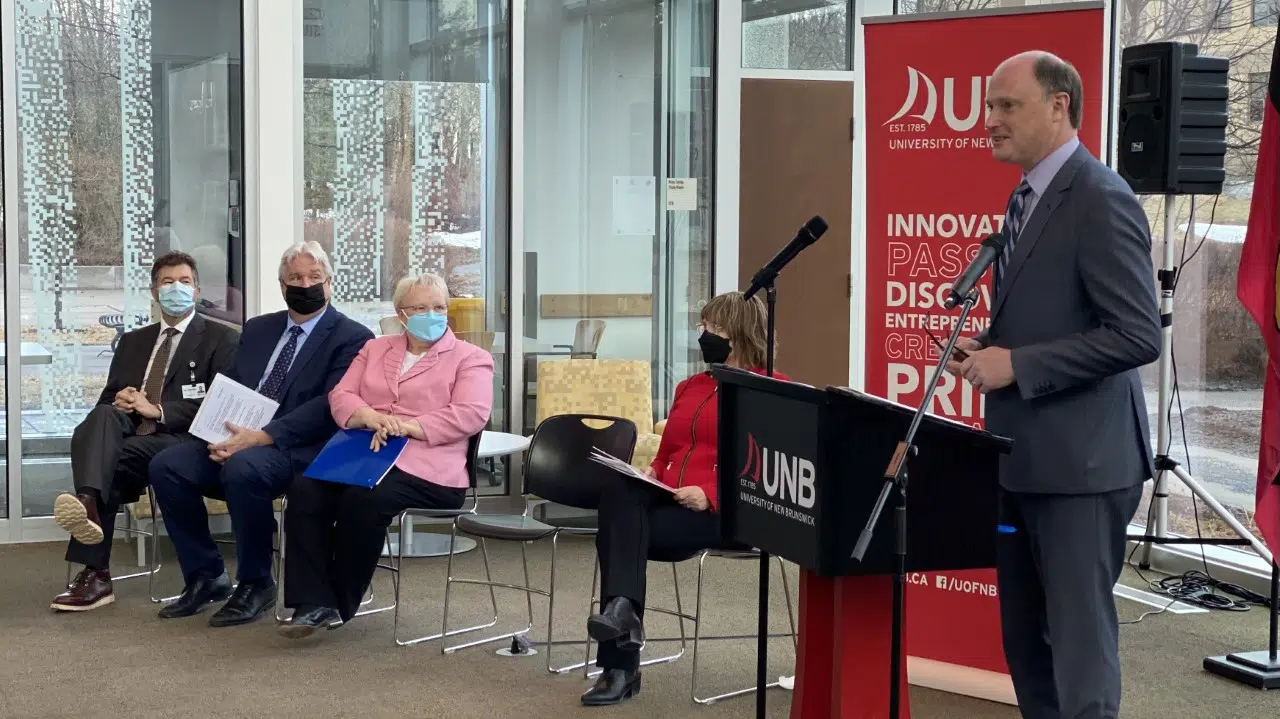Provincial funding will encourage two universities to graduate hundreds more nurses over the next decade.
The University of New Brunswick could receive up to $18 million in provincial incentives over the next 10 years.
Post-Secondary Education, Training and Labour Minister Trevor Holder said that will support up to 51 additional nursing seats per year.
“This is a performance-based agreement which will pay the university $35,000 for each nursing graduate over and above of 155,” Holder said when announcing the agreement at UNB’s Saint John’s campus on Monday.
In a similar agreement announced Monday, l’Université de Moncton could receive up to $12 million to create up to 34 additional nursing seats each year.
The money will only flow to each university once the student has graduated, said Holder.
Officials said that approach is in line with the auditor general’s 2019 recommendation that the department provides funding only after desired outcomes or targets have been met.
“We understand that it is more costly to run a nursing program compared to other post-secondary programs,” said Holder, adding that the province’s greatest source of new nurses is from its bachelor of nursing programs.
Dr. Paul Mazerolle, the president of UNB, said the university is currently graduating about 130 to 140 nursing students each year.
“We’re not up to the baseline yet … but we think that probably in the next year, year and a half, we’re going to be exceeding that,” Mazerolle said.
“It’ll take us a bit of time to ramp up to the 206, but we think it’s within sight.”
The news could not come any sooner as New Brunswick deals with a significant nursing shortage across the province.

Health Minister Dorothy Shephard speaks during an announcement at UNB Saint John on March 21, 2022. (Image: Brad Perry)
A Nursing Resources Strategy released by the Department of Health in 2019 projected a shortage of at least 130 registered nurses each year over the next 10 years — a deficit of around 1,300 RNs in the province’s health care system by 2028.
That same report found enrolment numbers in New Brunswick bachelor of nursing programs decreased from 522 in 2011 to 325 in 2017, while attrition rates for nursing students were at approximately 30 per cent.
Health Minister Dorothy Shephard said Monday there are currently more than 400 nursing vacancies provincewide.
Shephard said the Vitalité Health Network saw its vacancy rate fall to 233 from 270 budgeted positions between Jan. 2021 and Feb. 2022 — down to 11 per cent from 12 per cent.
During the same period, she said, the vacancy rate within the Horizon Health Network climbed to 16 per cent from 13 per cent.
“We have a number of challenges to overcome, but it is about increasing our homegrown numbers that we really have to focus on, as well as the other initiatives that we’re taking,” said Shephard.
Shephard was asked how the province plans to retain the new nurses who are graduating from these programs.
There have been discussions with the Nurses Association of New Brunswick and the nurses’ unions to ensure recruitment is a top priority, she said.
“I think the experiential learning is a big component. Getting our nursing students into our Horizon and Vitalite centres so that they can actually become part of the team and know that they’re welcome and know that we want them here,” said Shephard.
Dr. John Dornan, the president and CEO of Horizon, said while it is one thing to look at internationally-educated nurses, it is another to look at nurses who are trained here at home.
“We know that nurses that are trained at UNB, UNB Saint John, Moncton, are more likely to stay with us when the time is done,” said Dornan.
“Our biggest deficit — what causes stress, anxiety, difficulties in getting the job done — is not enough staff. No matter how good the environment, if you go into the hospital and there’s two people where there should be four, six people where there should be 18, it’s stressful.”
The universities must submit reports to the department each year validating the number of graduates above the baseline threshold and providing details on successes or barriers to meeting the goal.




